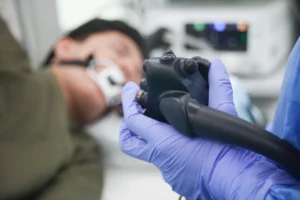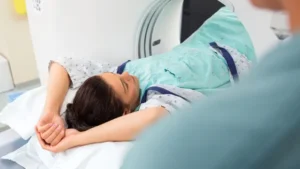Key Pointers:
- Colonoscopy is the gold-standard screening to detect and remove precancerous polyps.
- Recommended from age 45, earlier with family history or risk factors.
- Sedated, minimally invasive procedure; typically same-day discharge and quick recovery.
- Early detection lowers colorectal cancer deaths and avoids extensive treatment later.
- Discuss screening intervals and preparation with your doctor for personalised care.
Colon cancer is one of the most preventable and treatable types of cancer when detected early. Yet many people in Singapore delay or avoid screening due to fear, discomfort, or a belief that it’s only necessary with symptoms. The reality? A colonoscopy is not just a diagnostic tool; it’s a life-saving procedure that plays a vital role in early cancer detection.
If you’re over 45 or have a family history of colorectal issues, understanding the importance of this screening could change the course of your health.
What Is a Colonoscopy?
A colonoscopy is a medical procedure that allows doctors to examine the inner lining of your large intestine (colon and rectum) using a thin, flexible tube with a camera. It can detect abnormalities such as polyps, inflammation, or early signs of cancer long before symptoms appear.
Importantly, if polyps, small growths that may become cancerous, are found during the procedure, they can often be removed immediately.
Why Early Detection Matters
Colon cancer typically develops gradually over several years. By the time symptoms like blood in the stool, unexplained weight loss, or abdominal pain appear, the disease may already be in a more advanced stage.
A colonoscopy allows doctors to:
- Identify and remove precancerous polyps
- Detect cancer at its earliest and most treatable stage
- Reduce the overall risk of developing colorectal cancer
According to studies, regular colonoscopy screenings can lower colon cancer-related deaths by up to 68%.
Who Should Get Screened?
Previously, screening was advised from age 50. However, the U.S. Preventive Services Task Force and other expert bodies now recommend beginning at age 45, due to rising rates of colorectal cancer in younger adults.
Earlier or more frequent screening may be necessary if you have:
- A family history of colon cancer or polyps
- Inflammatory bowel disease (IBD)
- A personal history of polyps
- Lifestyle risk factors like smoking or a low-fibre diet
Even if you feel healthy, early screening can detect silent changes before they develop into serious problems.
What To Expect During a Colonoscopy
The procedure is safe, quick, and typically done under sedation to ensure comfort. You’ll be asked to follow a bowel prep routine the day before, which involves consuming a special solution to clear your colon.
On the day itself, the procedure takes around 30–60 minutes, and most patients can go home the same day. Some may experience mild bloating or gas later, but these side effects are temporary.
Don’t Wait For Symptoms To Appear
Colonoscopies are not just for diagnosing illness; they are a powerful tool for prevention. With colorectal cancer being one of the top cancers in Singapore, regular screening could make the difference between early intervention and late-stage treatment.
If you’re due for a screening or have concerns about your digestive health, book a colonoscopy consultation at GastroClinic. Take control of your health with early detection and proactive care.













